The 62nd Annual Grammy Awards were a teary affair: performers at the Staples Center took the stage below the retired jerseys of Kobe Bryant, who was killed in a helicopter crash earlier in the day. But the night also included triumphs for first-time Grammy winners like Lizzo, who kicked off the show with a jubilant performance, and Billie Eilish, who swept the big four categories for the first time since Christopher Cross in 1981. Here are the best and worst moments of the night.
Best: Alicia Keys’ capable hosting
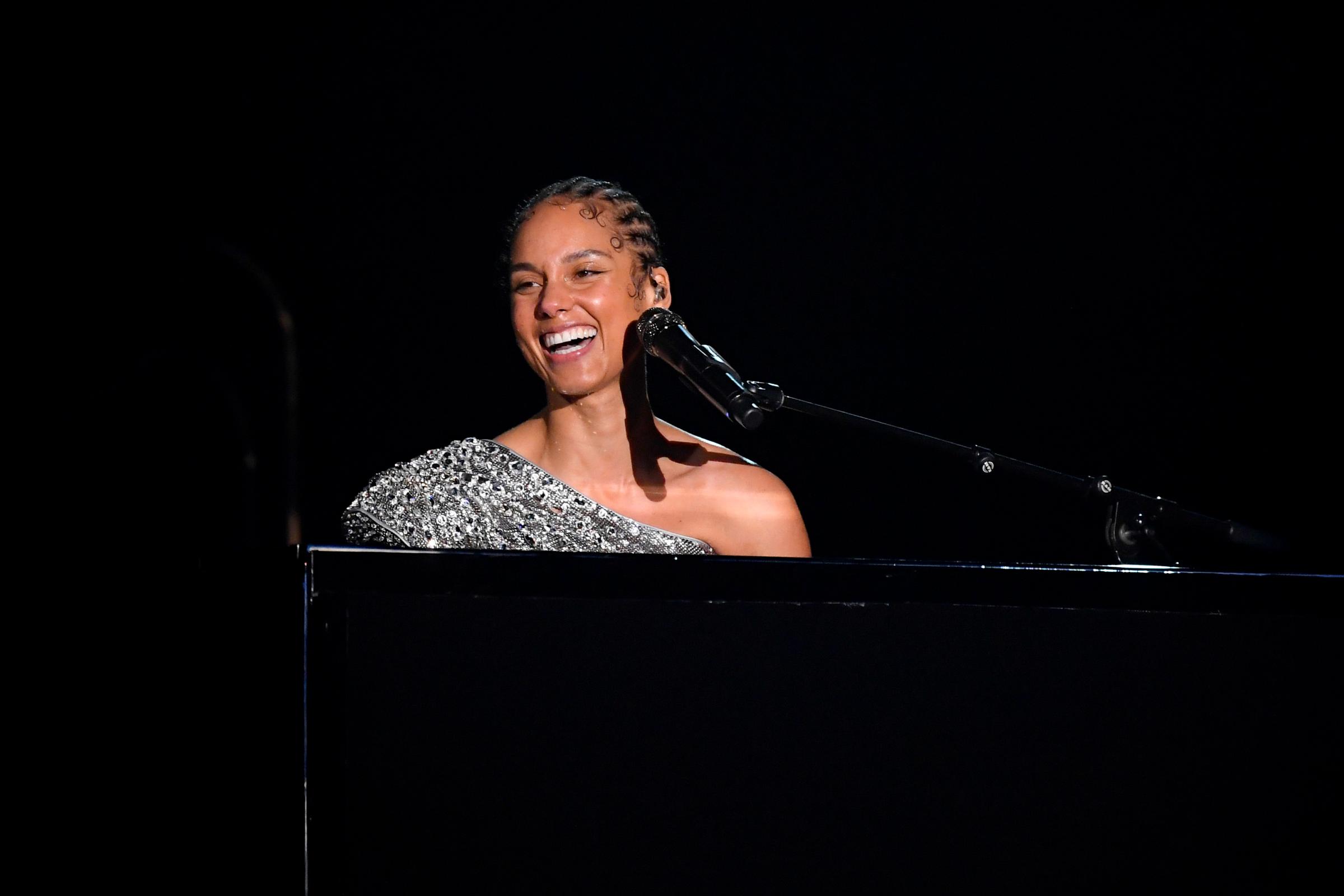
Hosting awards shows is a risky and thankless business—and despite all that’s gone wrong for Oscar hosts over the past few years, the Grammys are perhaps the hardest gig of them all. Given the behind-the-scenes chaos that has engulfed the Recording Academy, so many things could have gone wrong for host Alicia Keys. An overeager exuberance could have felt alienating to the portion of the music business calling for more diversity and accountability, while skepticism could have weighed down the entire night (see: this year’s Golden Globes). And that’s all before the news of Kobe Bryant’s death broke on Sunday afternoon, sending the Staples Center into a stunned sense of collective mourning.
But Keys rose to the occasion, handling an extremely awkward situation with flexibility and poise. Her impromptu a capella performance of “It’s So Hard to Say Goodbye to Yesterday” with Boyz II Men was a cathartic moment, and a perfect way to handle a tribute that could have dissolved into insincere treacle. (The performance also continued the song’s powerful legacy as a tribute anthem: Barrio Boyzz played it after Selena’s death, and Usher performed it for Aaliyah).
Keys was equally comfortable commanding the stage as she was doing crowd work; she nailed a conversational performance of her new song, “Underdog.” And she also slipped in some subtle critiques of the Academy, saying: “We refuse the old systems. We want to be respected and safe in our diversity. We want to be shifting to realness and inclusivity.” As a return host, Keys is flexing her power to push institutional change—while also quickly becoming to the Grammys what Billy Crystal was to the Oscars.
Worst: The in memoriam segment
While Keys and Boyz II Men handled Bryant’s death with grace, the rest of the show could hardly have done worse in paying tributes to fallen legends. There wasn’t a strong explanation for Usher’s paint-by-the-numbers karaoke tribute to Prince, who died three years ago, other than to promote CBS’ upcoming special to him. That time might have better been spent on a tribute to the Cars’ Ric Ocasek—but the Grammys even spelled his name wrong in the In Memoriam video. To make matters worse, they left the singer-songwriter David Berman of the Silver Jews out of the segment entirely.
Best: Tyler the Creator’s fiery performance
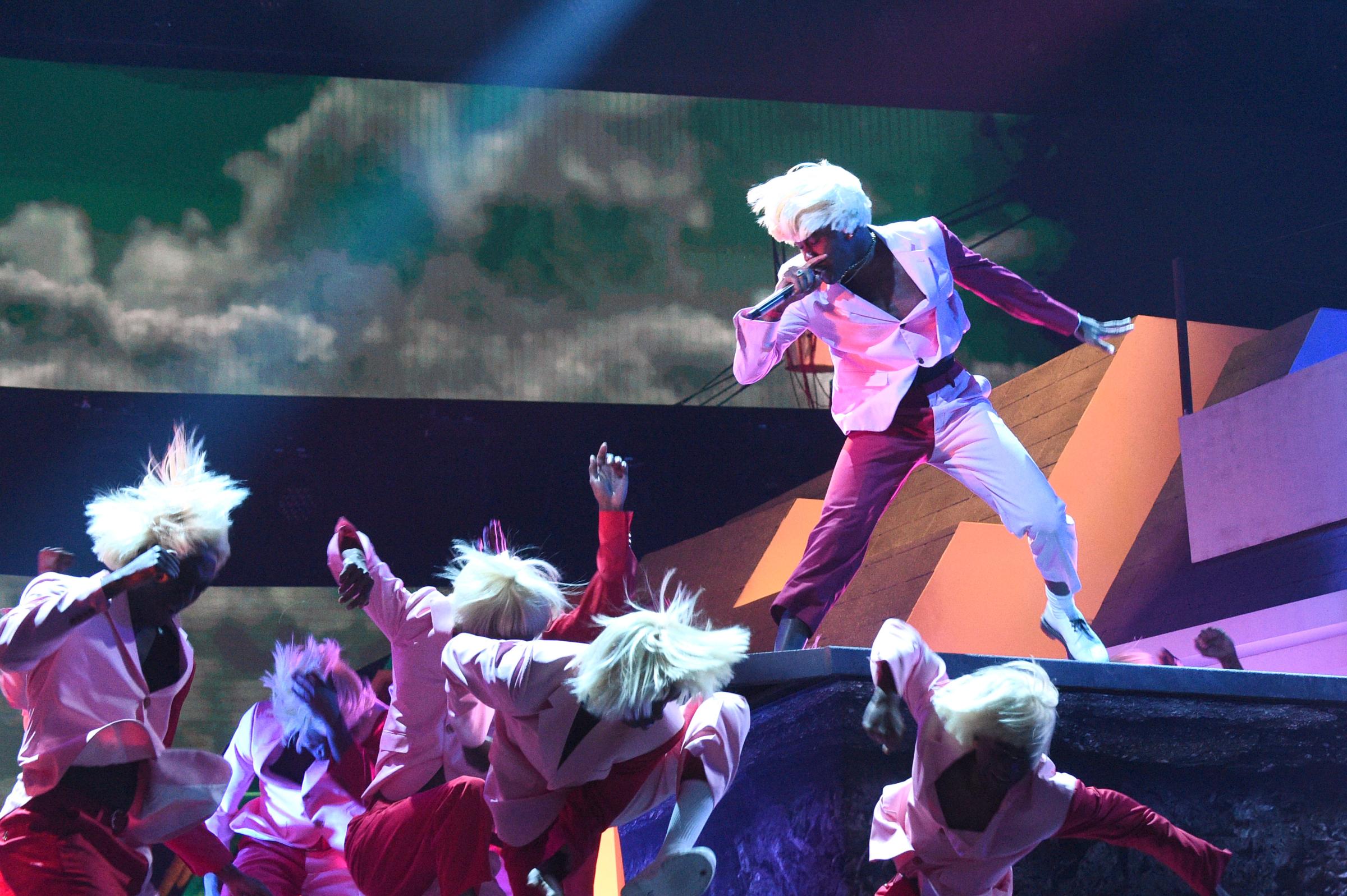
Grammy performances often skew staid, with rising stars asked to sandpaper over their rough edges and modulate their aesthetic toward that of a much older one-time collaborator. But Tyler the Creator refused to do so, forcing the telecast to go along with his much more alienating and iconoclastic vision.
Instead of moving onto Boyz II Men’s throwback turf, Tyler let them sing the rich harmonies on “Earfquake” and then put them on top of a terrifying, burning set of houses while he gasped and wheezed through “New Magic Wand,” one of the best songs on his album Igor. His spastic dancing, the glitching camera work, his gravelly sweet-sour singing and the terrifying set, perhaps a nod to the devastating fires in both Los Angeles and Australia—all reinforced the idea that he’s not just one of the world’s best rappers and producers but one of his generation’s sharpest auteurs.
He also gave two memorable speeches following his win for Best Rap Album—one onstage, in which he admonished the crowd for clapping too much and confidently steamrolled over the incidental music—and one backstage, in which he expressed frustration about the Grammys’ ghettoization of hip-hop. “Half of me feels like the rap nomination was a backhanded compliment—like oh, my little cousin wants to play the game, let’s give him the unplugged controller so he can shut up and feel good about it,” he said. It was a pointed and all-too-accurate rejoinder.
Worst: Crowd Diversity
If the Grammys wants to show its increased commitment to representation, it could start with maybe finding some people of color to put in the mosh pit. When YG came out to pay tribute to Nipsey Hussle and explore the relationship of Crips and Bloods and the plight of gang violence in Los Angeles, he was met by a too-enthusiastic almost-all-white crowd. And when Gary Clark Jr. delivered a bitter and scathing performance of “This Land”—in which his declaration “F-ck you I’m America’s son” was bleeped—he was also greeted with a volley of white hands.
Best: Ariana Grande’s powerhouse medley
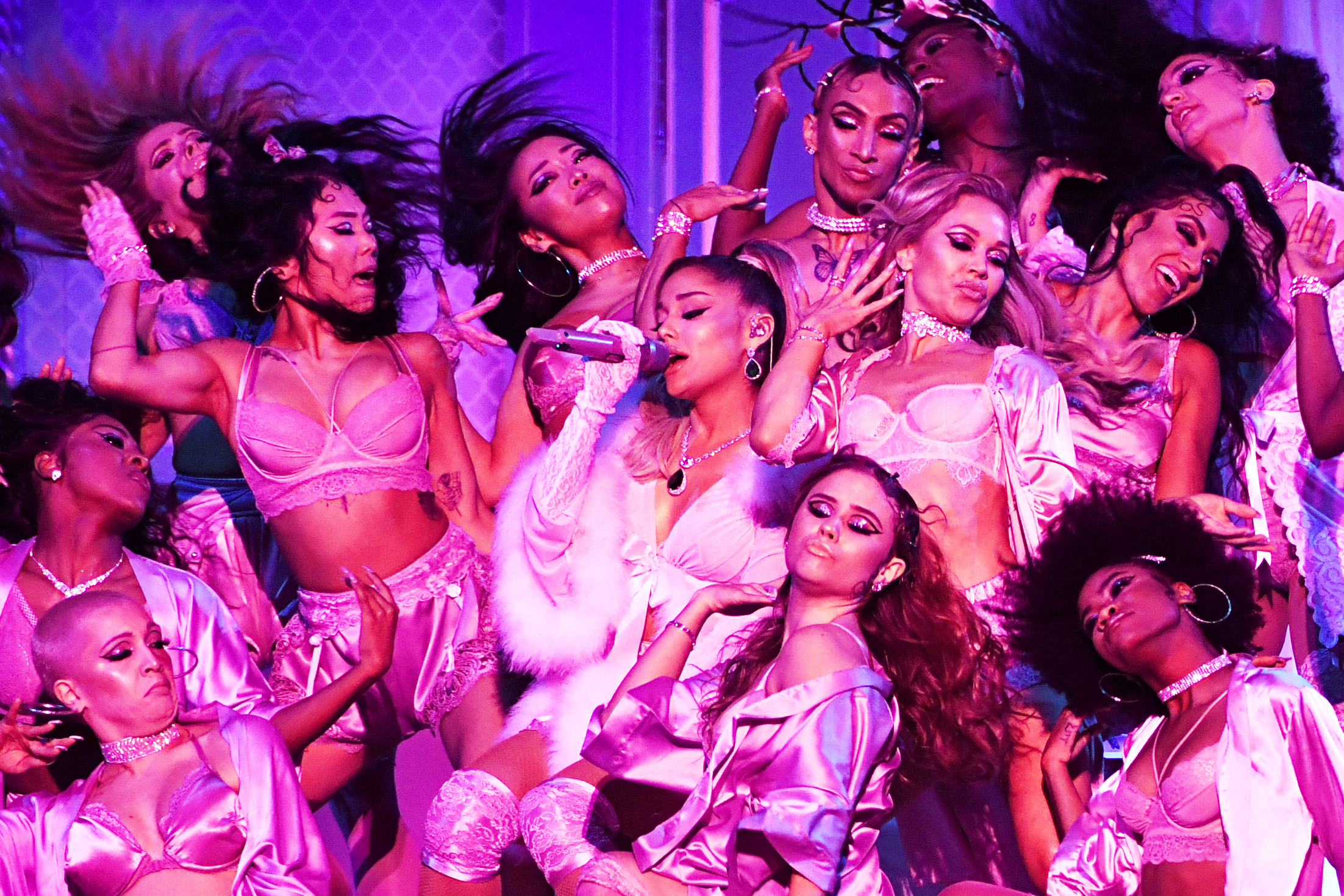
After disparaging the Grammys last year, Ariana Grande showed the Academy what they were missing by delivering a versatile powerhouse performance of cuts from her album Thank U, Next. She glided through her pink monochrome set with a cheeky ease, pairing old-school demure glamour with bombastic twerking and graceful full-throated vocal runs with effortless rapid-fire trap cadences.
Worst: So many no-shows
In practically every award category, there was a conspicuous static portrait filling one fifth (or one eighth) of the screen. No Lady Gaga, no Taylor Swift, no Dave Chappelle, no Young Thug, no Beyoncé, no Bon Iver. Their no-shows just reinforced the idea that many of the most important people in music don’t really care about the show anymore.
It’s hard to tell whether any of the acts declined to show in support of fired ex-president Deborah Dugan—but whatever the reason, these no-shows just reinforced the idea that the Grammys’ relevance has waned.
Best: Redemption narratives
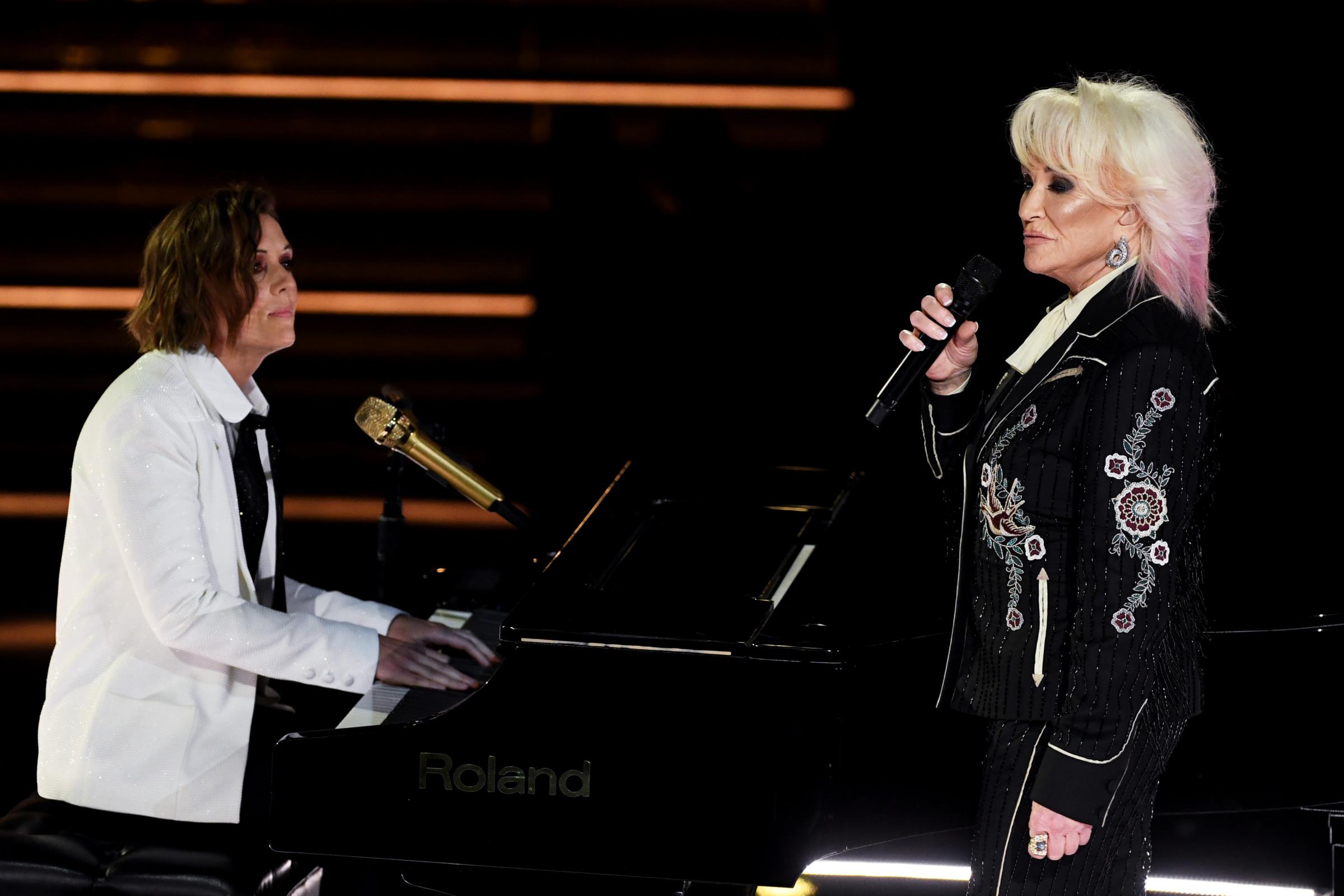
The Grammys love a good comeback story, and they gave the stage to two heartfelt and mesmerizing ones this year: Tanya Tucker and Demi Lovato. Tucker, a country recluse who was first nominated in 1973 and last nominated in 1994, looked a bit shellshocked to be on the Grammy stage, but handled her performance of “Bring My Flowers Now” with a steely grit.
An hour later, Lovato brought down the house with the debut of “Anyone,” written after several years of struggle with bulimia, addiction and bipolar disorder and an overdose in 2018. Lovato stumbled out of the gate, asking her pianist to restart the song after a few bars. But the slip-up—after which a single tear rolled down her right cheek—only reinforced the song’s startling emotional nakedness, which she delivered with mounting force. “A hundred million stories / And a hundred million songs / I feel stupid when I sing / Nobody’s listening to me,” she sang. She couldn’t have been more wrong.
Worst: The incessant bleeping
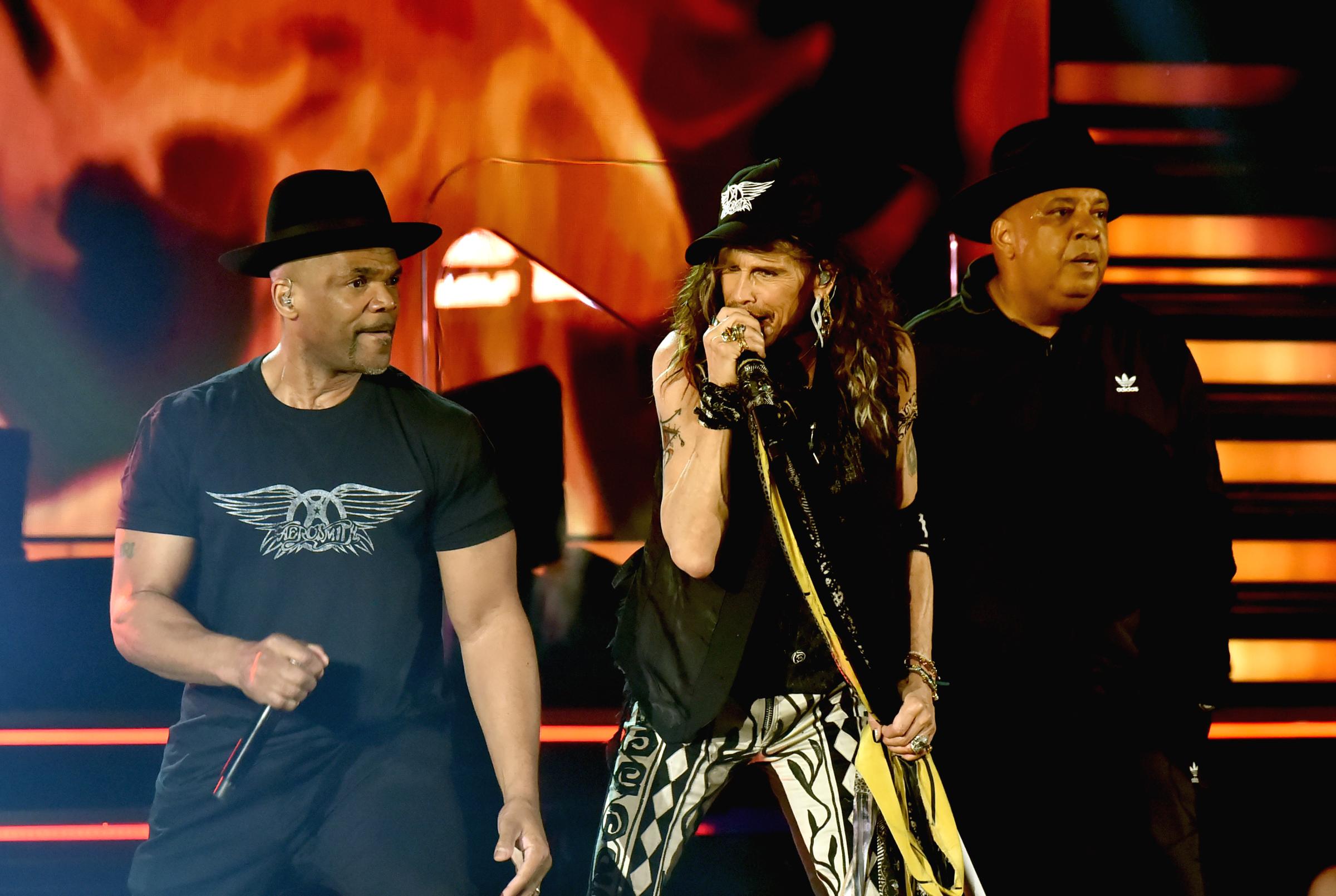
And the Grammy for most frequent performer at this year’s show goes to… whoever controls the bleeping. It seemed like during every other performance or speech, the broadcast fell silent altogether, completely halting momentum and goodwill. To kick off the night, Lizzo was bleeped; so were Ariana Grande, Nas, Aerosmith, Gary Clark Jr. and Billie Eilish, and then Eilish again. I know we’re on CBS. But could they not have worked out substitutions, or like, sent out a memo about profanity before the show?
Best: “Old Town Road”
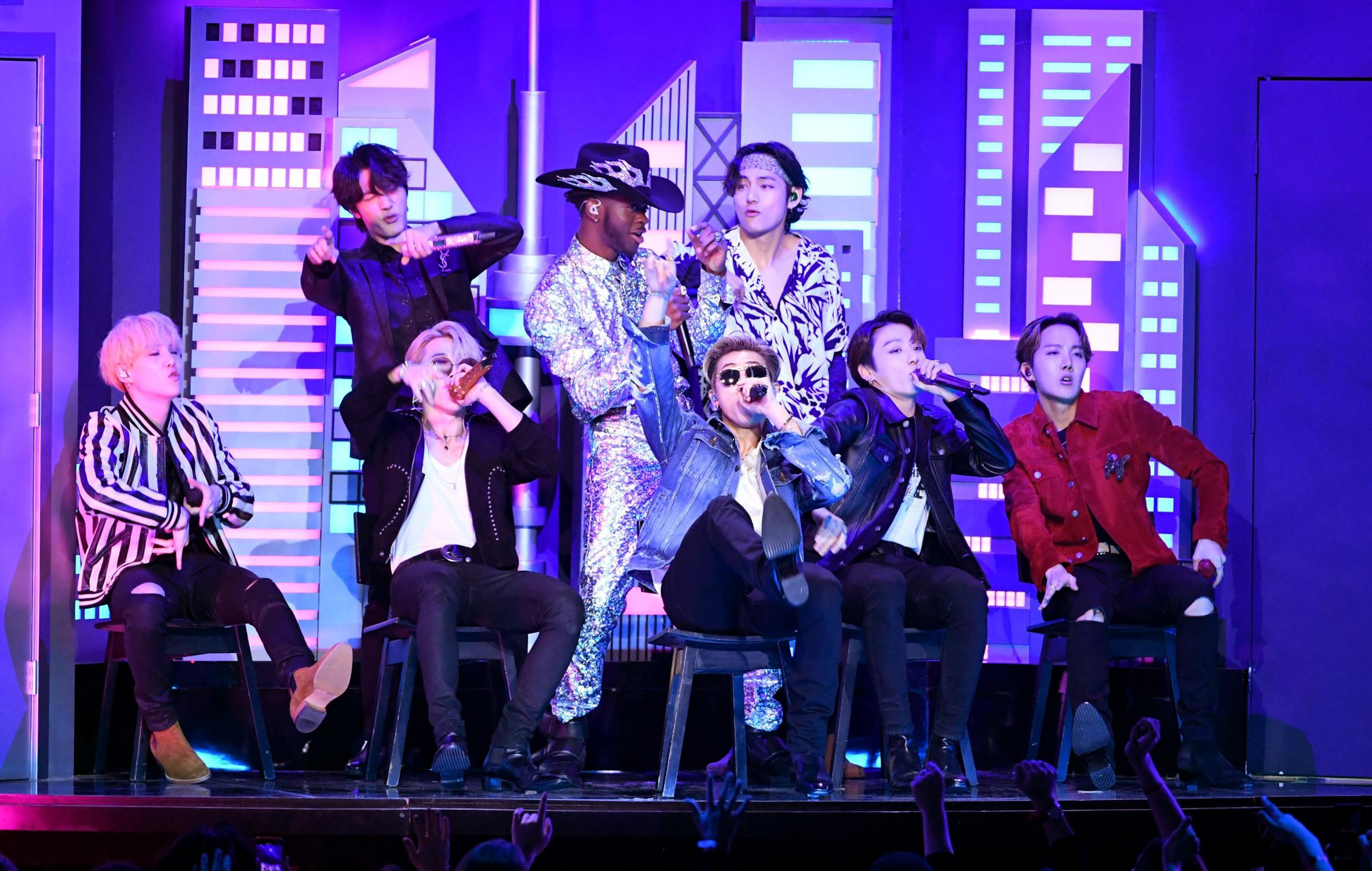
While this year’s Grammys clearly needed to include the biggest song of all time, the song presented something of a logistical challenge. How could one stage hold so many distinct personalities, from Lil Nas to BTS to Mason Ramsey, and fold them into one cohesive whole?
The answer was obvious in retrospect: a spinning lazy susan that allowed Lil Nas to strut through several sets, each containing a different aesthetic and set of performers, before combining them all into one room. BTS brought a shaggy charisma with their seated dancing; Billy Ray Cyrus evoked the best Clint Eastwood movies with his stoic delivery of his unimpeachable verse. But Lil Nas saved the biggest surprise for last: the original Nas himself, who sounded invigorated over the ominous beat of “Rodeo.” Nas’ appearance effectively passed his torch to a much younger rapper, whose center of gravity and communal spirit throughout the performance showed his potential as far more than a one-hit-wonder.
Worst: Tonal incongruities
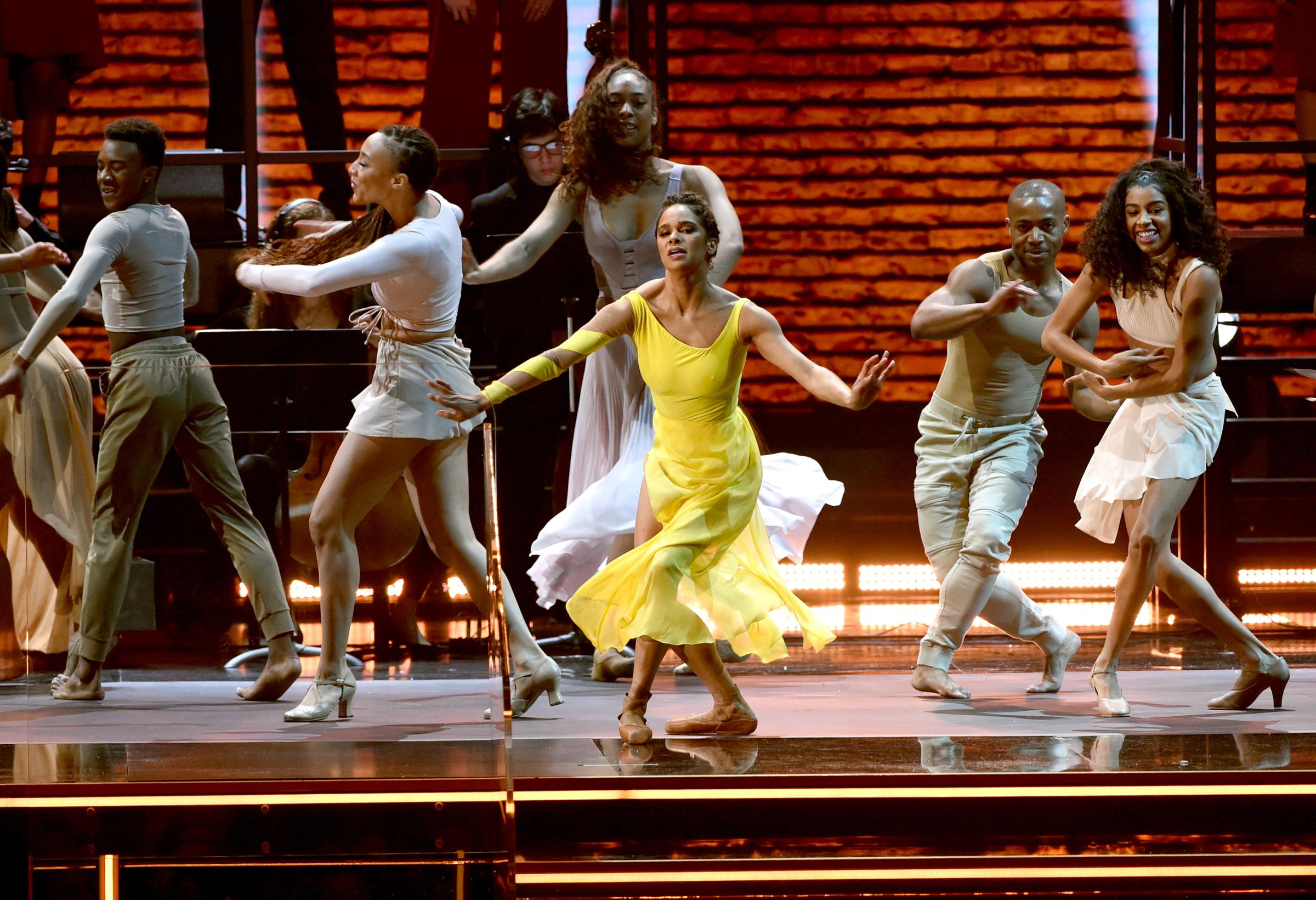
We know the Grammys are all about bringing people together, but does it really make sense for the comedian Jim Gaffigan to introduce Camilla Cabello? Tonal inconsistencies and swerves ran rampant throughout the ceremony. Brandi Carlile presented Best Comedy Album. Sharon Osbourne shanked the pronunciation of DJ Khaled while presenting Best Rap/Sung performance; her singsong reading of the nominees turned the category into a farce and only reinforced the idea that the Grammys don’t take rap seriously.
But the worst forced mashup, by far, was producer Ken Ehrlich’s farewell statement performance, an incoherent, bloated rendition of “I Sing the Body Electric” from Fame. Ehrlich was one of the main targets of ex-CEO Deborah Dugan’s complaint filed last week: she alleged that he was near the center of the Recording Academy’s “boys club” and that he would fix the award winners in order to land the performers he wanted onstage. (Ehrlich has not publicly responded to those allegations.)
Whatever he was going for with the hodge-podge afffair, it made him look out of touch, at the very least. Nothing says Grammy Moment like a ballerina (Misty Copeland) spinning in place while the 1985 Best New Artist winner (Cyndi Lauper) and a classical violinist (Joshua Bell) shred through a song from a 40-year-old movie. The bewildered looks from stars like Grande and Eilish following the performance spoke for themselves.
More Must-Reads from TIME
- Caitlin Clark Is TIME's 2024 Athlete of the Year
- Where Trump 2.0 Will Differ From 1.0
- Is Intermittent Fasting Good or Bad for You?
- The 100 Must-Read Books of 2024
- Column: If Optimism Feels Ridiculous Now, Try Hope
- The Future of Climate Action Is Trade Policy
- FX’s Say Nothing Is the Must-Watch Political Thriller of 2024
- Merle Bombardieri Is Helping People Make the Baby Decision
Contact us at letters@time.com